|
This week's guest speaker is Dr. Renny Domske.
Gathering Around the Word
Prelude ANNOUNCEMENTS CALL TO WORSHIP: from Psalm 33 Sing joyfully to the Lord, you righteous; it is fitting for the upright to praise Him. Sing to the Lord a new song; play skillfully, and shout for joy. For the word of the Lord is right and true; the Lord is faithful in all He does. The Lord loves righteousness and justice; the earth is full of His unfailing love. The eyes of the Lord are on those who fear Him, on those whose hope is in His unfailing love. Our hearts rejoice, for we trust in His holy Name. May Your unfailing love rest upon us, O Lord, even as we put our hope in You.
INVOCATION;
*HYMN “O For a Thousand Tongues to Sing” # 610 (Intro then 5 verses) *PRAYER OF CONFESSION: Lord God, in the light of Your glory we see the evil we have done, the suffering we have caused, the good we have refused, and the truth we have denied. We have sinned. We are sorry. Heal us of our foolish sins, wash us in Your mercy and feed us with Your grace. Assist us to follow Your way and to freely tell others the Good News of the Gospel---that Jesus died for you and me. *Time of silent prayer: *Assurance of Pardon *Response – Gloria Patri *The peace of the Lord Jesus be with you. And also, with you. *Passing of the peace Children’s Chat Prayer of illumination Scripture reading Matthew 6: 25 – 34 Ruby Hathaway Philippians 4: 4 – 9 SERMON: “Paying Attention To The Little Things” *HYMN “It is Well With My Soul” # 840 (Intro then 4 verses) *Apostles Creed Presentation of tithes and offering Offertory *Doxology *Prayer of dedication Concerns and Celebrations Prayers for the people The Lord’s Prayer * HYMN “Leaning on the Everlasting Arms” # 837 (intro then 3 verses) *Benediction Postlude
BIRTHDAYS Lois Miller, Ed Horne, Michael Neal
ANNIVERSARIES Dave & Ina Henderson SYMPATHIES To the Family of Linda Hatfield, Wendy Liggett's mother To the Family of Laverne Dinch To the Family of Jean Danna, Walt Danna’s mother and friend of Diana Donaldson To the Family of Don Oatman To the Family of Alma Snyder, Ruby Hathaway's sister Remember our food collection. And Jesus said, “You give them something to eat.” Please let Betty Fisher know of anyone within the community that may be in need at this time. Just a reminder for the Strawberry Festival on July 21, 2023 from 5 - 8 pm. VBS is coming up on July 29 to August 4th from 6 to 8 pm. There will be sign up sheets and registration forms next week. The WOW meeting is this Wednesday, June 28th at 9:30 am. Come and join the conversation and fellowship.
Continuing Prayer List
Chuck Dicks, Frank Huffman, Tom Westfall, Elaine Belcastro, Sandy Stone, Matt Petrola, Sarah Wilson, Carl Weber, Jimmy Svetz, Haley Diedier Bedillion, Fred Wilkinson, Evelyn Wood, Ricci Amos, Tiffany Cipoletti, Diane Anderson, Tim Taylor, Suzy Smith, Helen Provenzano, Richard Ward, Donna West, Judy Donaldson, Marlene McFeely, Chuck Harton, Robert Paxton, Wiley Myers, Keith McGill, Ron and Jean Westfall, Billie Wilson, Ed Horne, Sue Gregg, Nelson Huffman, Diane (Sarah Clifford’s Mother's friend's daughter-in-law), Wendy Willard
0 Comments
Good morning!
We're so glad you decided to join us today!
When we meet in person, we take some time to share about our last week. This includes our joys and concerns. If you have any prayer requests you would like to share, you can add them as a comment on this post. When you are ready, use the prayer below (source) to get started.
Thank you Father for Your mercy and grace in sending Jesus to pay the ultimate price for my sin. Help me to comprehend how loved that I am. Help me to understand that You spin around in such joy and delight when I seek Your presence. Thank you that You are with me through the highs and the lows of my life. Help me to surrender all my plans to You and to seek Your path for my life. Don't let me miss anything that You have planned for my life. Amen.
This week's lesson is on Zephaniah 3:14-20.
Zephaniah’s message of judgment and encouragement contains three major doctrines: 1) God is sovereign over all nations. 2) The wicked will be punished and the righteous will be vindicated on the day of judgment. 3) God blesses those who repent and trust in Him.
Zephaniah pronounces the Lord’s judgment on the whole earth, on Judah, on the surrounding nations, on Jerusalem, and on all nations. This is followed by proclamations of the Lord’s blessing on all nations and especially on the faithful remnant of His people in Judah. Zephaniah had the courage to speak bluntly because he knew he was proclaiming the Word of the Lord. His book begins with "The word of the Lord" and ends with "says the Lord." He knew that neither the many gods the people worshiped nor even the might of the Assyrian army could save them. God is gracious and compassionate, but when all His warnings are ignored, judgment is to be expected. God’s day of judgment is frequently mentioned in the Scriptures. The prophets called it the "Day of the Lord." They referred to various events such as the fall of Jerusalem as manifestations of God’s Day, each of which pointed toward the ultimate Day of the Lord. With a few adjustments in names and situations, this prophet of 7th century B.C. could stand in our pulpits today and deliver the same message of judgment of the wicked and hope for the faithful. Zephaniah reminds us that God is offended by the moral and religious sins of His people. God’s people will not escape punishment when they sin willfully. Punishment may be painful, but its purpose may be redemptive rather than punitive. The inevitability of the punishment of wickedness gives comfort in a time when it seems that evil is unbridled and victorious. We have the freedom to disobey God but not the freedom to escape the consequences of that disobedience. Those who are faithful to God may be relatively few, but He does not forget them.
Prayer
Almighty God, we are thankful for the people who taught us about you. We are grateful for their examples of faithfulness and for the faith of others through the centuries. Today we rededicate ourselves to be faithful until the end — the end of our lives or the end when Jesus comes to gather his people. In Jesus’ name we pray. Amen. Thought to Remember Resolve to stand on the promises of God —- today and all the tomorrows!
Benediction
This week's benediction is from the New King James Version.
Next week's lesson will be on Zechariah 9:9-13, 16-17.
Today's guest speaker is TJ Spruill.
Gathering Around the Word
Prelude ANNOUNCEMENTS: CALL TO WORSHIP: Praise the Lord, O my soul, all my inmost being, praise His Holy name. Praise the Lord, O my soul, and forget not all His benefits Praise the Lord, you His angels, you mighty ones who do His bidding, who obey His word. Praise the Lord, all His heavenly hosts, you His servants who do His will. Praise the Lord, all His works everywhere in His dominion.All: Praise the Lord, O my soul. INVOCATION: *HYMN “I Sing the mighty power of God” #32 (Intro and then 3 verses) *PRAYER OF CONFESSION: unison Eternal and merciful God, You have loved us with a love beyond our understanding, and You have set us on paths of righteousness for Your name sake. Yet we have strayed from Your way; we have sinned against You in thought, word, and deed, through what we have done and what we have left undone. As we remember the lavish gift of Your grace symbolized in baptism, O God, we praise You and give You thanks that you forgive us yet again. Grant us now, we pray, the grace to die daily to sin, and to rise daily to new life in Christ, who lives and reigns with You, and in whose strong name we pray. Amen *Time of silent prayer: *Assurance of Pardon *Response – Gloria Patri *The peace of the Lord Jesus Christ be with you. And also, with you. * Passing the peace Children’s Chat Prayer of Illumination Scripture reading 1 Peter 2: 1 – 10 Don Herschell Romans 12: 1 - 21 Sermon “Made for This” *HYMN “Be thou my vision” #450 (no intro - 4 verses) *Apostles Creed Presentation of tithes and offering Offertory *Doxology Prayer of dedication Concerns and celebrations Prayers for the people The Lord’s Prayer * HYMN “ Love Divine, All Loves Excelling” #366 (intro – 4 verses) *Benediction *Postlude
Good morning!
We're so glad you chose to join us today!
When we meet in person, we share our joys and concerns. If you have any prayer requests you would like to share, you can add it as a comment to this post. When you are ready, use the prayer below (source) to get started.
O Lord Unite all. Let the religions agree and make the nations one, so they may see each other as one family and the whole earth as one home. Amen.
This week's lesson is on Ezekiel 37:21-28.
Hearing, accepting, and trusting God's Word involves more than just intellectual ability. It requires us to reorient our desires. We must want to trust, to hope and to love. Today's text helps clarify this needed reorientation.
Ezekiel lived at the time Jerusalem fell to the Babylonians in 586 BC. The destruction and accompanying exile was preceded by two other deportations. The first of those came in 605 BC, when Daniel and his friends were taken captive to Babylon. Ezekiel's relocation to Babylon became part of the second deportation as he found himself among the 10,000 of the elite citizenry taken in 597 BC. Daniel and other Jews were taken to serve “in the king's palace” while Ezekiel found himself “among the exile by the Kebar River” where “the hand of the Lord was on him”. The book of Ezekiel features many astonishing word pictures. One of the most famous is the valley of the bones, in Ezekiel 37:1-14. Ezekiel has a vision of the bones reconstructing themselves and becoming flesh. It is followed by a least famous illustration of two sticks which represent Judah and Israel coming together as one nation. Verse 21 introduces a series of specific future realities that together paint a picture o a new life to come. The predicted reality of the Israelites being regathered into their own land had been stated before. It was a message that bore repeating and was repeated by other prophets as well in Isaiah, Hosea and Amos. The dispersion and scattering of the Israelites continued into the time of Jesus. It seems unlikely, therefore, that the prophets expected each and every person of Israelite descent to return to Palestine. As the books of Ezra, Esther and Daniel make clear, some Jews chose not to return to the homeland, and they continue to live in Gentile settings. There they continued to reflect deeply on how to maintain faith as a minority that was often prosecuted. Even so, the return home and rebuilding of the temple signaled to everyone the presence of God. The one nation of Israel had split into two nations in 931 BC, following the death of King Solomon. That situation may have seemed permanent, given the facts of two exiles (Assyrian and Babylonian) and the passage of three and a half centuries. But Ezekiel expected the 12 tribes to be reunified nonetheless. Promises such as Ezekiel's here came to be seen not as literal predictions of a singular human king ruling in a specific place, but as anticipating the Messiah, whose rule would encompass all things. The forthcoming restoration was also to be characterized by the end of idolatry in all its forms. The worship of false gods was the prime reason for all of Israelites' other problems. It had led to the defilement of the land in general and of the temple in particular. Cleaning the land and the temple of such religious filth would be important. Cleaning idolatry from hearts would be all more so. Ezekiel prophesied the future would be different. Ezekiel did not think that the people could completely purge idolatry by their own willpower. Rather, God was to cleanse them. The people would experience the sort of physical and spiritual purification necessary for anyone going to the temple to worship. The forthcoming purification would affect all of life-life with God and life with one another. They will become God's people. Anyone who rules over God's people should function as a shepherd. That designation describes someone who protects others from harm. The one shepherd to come would stand in stark contrast between the worthless shepherds who exploited the people. People tend to behave as their leaders do, and this fact was the driver of ending up in exile. The shepherd king will be a model of behavior that reflects the opposite, the result will be an era of justice, in which faithful people obey God's laws and decrees fully. The focal point of the people's renewal was to rebuild the temple in Jerusalem. That building was a symbol of God's abiding presence among the people. The promised peace would therefore be more than a mere absence of conflict. Rather, it was to be a condition in which the people would flourish as God intended. Ezekiel insisted that the new arrangement would be permanent given the terms everlasting and forever are translations of the same word forever.
Conclusion: Finding Life Again
Rebuilding a community after any kind of disaster is difficult work. For progress to be made, those affected must acknowledge their pain, find resources for renewed hope and take practical steps to build a new life. The Judean prophets took precisely those steps during and after the Babylonian exile. God made sure that they did. Connecting practical steps with the values, commitments and dreams of a congregation presents an ongoing challenge, as all church leaders know. We easily drift into saying, “We must do something; here is something; therefore, we must do this.” Clear thinking about why we need to act in a certain way easily gets lost. Ezekiel made sure that his audience thought deeply about what to do and why. He held out the hope not just of reclaiming lost spaces and practices, but of reentering the deeper meaning of those very spaces and practices. We need constant renewal in this regard. Before assuming that “God is on our side” we should ask, “Are we on his?” The latter question will invite a season of self-reflection and prayer. That in turn puts us in a position for being equipped “With everything good for doing his will... through Jesus Christ, to whom be glory for ever and ever.” Prayer God of all generations, who restores and renews us after catastrophes of our own making , grant us a deeper sense of your presence in our lives. May your church then become an example to all the world of what those created in your image may be. In Jesus' name we pray. Amen
Questions for Discussion
Benediction
This week's benediction is from the New Revised Standard Version.
Next week's lesson will be on Zephaniah 3:14-20.
Today's guest speaker is Rev. Renny Domske.
Gathering Around the Word
Prelude ANNOUNCEMENTS CALL TO WORSHIP: from Psalm 32 Blessed is he or she whose transgressions are forgiven; Blessed is he or she whose sins are covered. Blessed is the one whose sin the Lord does not count against him; Blessed is the one in whose spirit there is no deceit. I acknowledged my sin to You and did not cover up my iniquity. I said, “I will confess my transgressions to the Lord”—and You forgave. You are my hiding place; You will protect me from trouble. You, O Lord, will surround me with songs of deliverance. Do not be like the horse or the mule, which have no understanding. The Lord’s unfailing love surrounds the one who trusts in him. Rejoice in the Lord and be glad, you righteous! Sing to the Lord, all you who are upright in heart! INVOCATION; *HYMN “ All Hail the Power of Jesus’ Name” # 263 (Intro then 4 verses) *PRAYER OF CONFESSION: Heavenly Father, You have loved us. You sent Your Son Jesus to redeem us. You have brought us to the Light. You have revealed us and continue to reveal Yourself to us. You have called us to be Your Own. Forgive us for not being grateful. Forgive us for not staying aware Forgive us for not proclaiming Your praise. Forgive us for our selfishness. You deserve all the glory. Your love and Your gifts are unending. Teach our hearts to overflow with Your joy and Your praise. *Time of silent prayer: *Assurance of Pardon *Response – Gloria Patri *The peace of the Lord Jesus be with you. And also with you. *Passing of the peace Children’s Chat Prayer of illumination Scripture reading Ephesians 2: 11 – 22 Mary Esselstyn Haggai 1: 1 – 13 SERMON: “Is Your Foundation Tilting?” *HYMN “Softly and Tenderly” # 418 (Intro then verse 1 and 3) *Apostles Creed Presentation of tithes and offering Offertory *Doxology *Prayer of dedication Concerns and Celebrations Prayers for the people The Lord’s Prayer * HYMN “Seek Ye First” # 175 *Benediction Postlude
BIRTHDAYS
None this week ANNIVERSARIES None this week SYMPATHIES To the Family of Jeff Durila Mike Durila’s brother Remember our food collection. And Jesus said, “You give them something to eat.” Please Let Betty Fisher know of anyone within the community that may be in need at this time. Prayers for Mike and Debbie Durila. Mike’s brother passed away this week. Prayers needed for Sue Gregg who is in Washington Hospital with A-Fib. She has been there for a week. Please keep Keith McGill in your prayer also. The session is to meet on Monday June 12 at 7 pm. Women’s Missionary Group will meet this Tuesday, June 13th at 9:30 am. Please come join us as we fellowship together. Women on Wednesday (WOW) will meet on June 14th at 9:30 am in the social hall of the church. Remember next Sunday, the 18th, is Father’s Day. Let’s show that it is as important as Mother’s Day.
Continuing Prayer List
Chuck Dicks, Frank Huffman, Tom Westfall, Elaine Belcastro, Sandy Stone, Matt Petrola, Sarah Wilson, Carl Weber, Jimmy Svetz, Haley Diedier Bedillion, Fred Wilkinson, Evelyn Wood, Ricci Amos, Tiffany Cipoletti, Diane Anderson, Tim Taylor, Suzy Smith, Helen Provenzano, Richard Ward, Donna West , Judy Donaldson, Marlene McFeely, Chuck Harton, Robert Paxton, Wiley Myers, Keith McGill, Jean Westfall, Billie Wilson, Don Oatman, Ed Horne, Sue Gregg, Family of Mike and Debbie Durila
Good morning!
We're so glad you chose to join us today!
When we meet in person, we share our joys and concerns with each other. If you have prayer requests to share, you can add them to the comments on this post. When you are ready, use this prayer to get started.
Lord, many people and churches are going through difficult times right now, times of suffering and uncertainty, of concern and doubt. Some are experiencing personal loss and grief. Some are worried about what the future holds as society changes and as people lose interest in the organizations that used to bring us together.
Help us not to lose hope, Lord. Help us to remember that people of faith have gone through difficult times in the past. Help us to remember that you are a God who is always creating new realities for us and for our world. Looking for that new creation, we pray for the needs of our community and our world. In Jesus’s name. Amen.
This week's lesson is on Isaiah 65: 17 - 25.
Introduction
When we go through difficult times — times of uncertainty, loss and suffering — it can seem like the end of the world. It can seem as if hope is gone and we will never find happiness or the contentment we once envisioned for our lives. Such times are discouraging. But as people of faith, we believe that God can turn our situations around. Therefore, we should never lose hope completely. In 609 BC, the Babylonians captured Jerusalem and the southern kingdom of Judah, and in 597 BC and 586 BC, they took the leading citizens into captivity in Babylon. They destroyed the temple and the walls around Jerusalem, and it looked as though God’s chosen people might never return to their land. It seemed as though the Jewish people might fade from history. (The northern kingdom of Israel had already been conquered and assimilated by the Assyrians many years earlier.) Looking back, the prophets saw the Babylonian captivity as God’s punishment for the people’s idolatry and their lack of care for the poor. But in these final chapters of Isaiah, which includes today’s scripture, God speaks through Isaiah and promises restoration and renewal.
Celebrating Newness (verses 17-19)
From New Testament passages such as 2 Peter 3:13 and Revelation 21:1, we see the biblical vision of God ushering in an entirely new creation at the end of time. However, when this passage speaks of God creating “a new new heavens and a new earth,” it does not refer to that event, at least not directly. Instead, it refers to “a radically different future reality” for the people who were returning from captivity in Babylon. Instead of being dominated by foreign powers and instead of living in rebellion against God, the people would live in peace and prosperity, Isaiah proclaimed. To the people of that time, this would have seemed like a new creation. It would have been almost unimaginable and even impossible. And without God’s intervention, it would have been. When that time comes, Isaiah says, the people will forget about the suffering and separation that they experienced in captivity. That is because something better and more important will have replaced it in their minds. This will be a new age with a new reality. Through Isaiah, God invites the people to celebrate God’s new creation in that age. Jerusalem — the place where God had connected with the people before it was destroyed — will be recreated. And God will join in the celebrations, and once again God will take delight in God’s people. The scene will be of joy, and tears and sadness will be a fading memory.
The New Reality (verses 20-25)
Isaiah expands on the blessings that God’s new reality will engender. Unlike during the hard times of captivity and war, people will be expected to live long lives. Infants will no longer die. So common will it be that even people who fail to reach 100 will be considered cursed. Also unlike the people who were forced into captivity, they will be able to live in the houses they built. They will also plant vineyards and stay to eat the fruit. Instead, the captives were living many miles from the homes they had built, while others took residence in their homes. In many cases, their fields and vineyards simply became the abode of wild animals and wild vegetation. All was left to whoever happened to discover it or, if no one did, to the wildlife.
Someone Else’s Home
When I was a junior in college, I got a summer internship in the US House of Representatives. I didn’t have much notice. I found out I had gotten it at the end of one week. and I told I was to be at work the next Monday. It was an opportunity that I did not want to pass up. So I bought a bus ticket and arranged for my uncle, who lived near Washington, DC, to meet me at the station. We spent the day driving around the city looking for an apartment. After going to several places and finding nothing available, at least that I could afford, we happened to meet a woman at Georgetown University who was just about to post a notice for an apartment that was available. We followed her to the building. and she showed us the room. It was a terrible place, with mattresses stacked in the middle of the floor for a bed and drawers that did not fit the dresser. But the day was almost over and the price was within my budget. I took it. My biggest concern, though, was that it appeared someone else might still be living there. There were stacks of books around the room, clothes in the closet and food in the refrigerator. Beside that, the landlady did not give me a key, but I had to wait for her to come and open up the door for me each evening. As I lay on the mattress under the single bare bulb that illuminated the room, I lived in constant concern that someone might come in one night and say the room was his. Who was this person? What happened to him? If he came back, what might he do? Those who took up residence in the rural areas of Judah may have wondered about the people who had left their homes and fields so quickly as well. Who were they? What caused them to leave so quickly and to abandon their homes and property? They probably didn’t expect them to return to their homeland. But one day, through God’s intervention, they actually did. In the new reality that God is bringing for the people of Judah, the people will reap the benefits of their labor and their children will be blessed. Not only that, but God will be so close to the people and so responsive to their needs that God will answer their prayers before they even say them. This contrasts to how God had turned away from the people in the past. Because of their mistreatment and neglect of the poor, the widows and the orphans — the most vulnerable of society -- God turned away from them. When we make God’s priorities our priorities and set aside our own selfish needs, it is easy for God to answer our prayers. Our passage concludes with a statement that represents the ideal for God’s creation and for God's people. It is a vision that we should have, even though it always eludes us. Wolves and lambs will live together, Isaiah says, and lions will be satisfied with vegetables and grain. No one and no thing will prey on another in this new reality. This has been called the vision of “the peaceable kingdom.” This ideal kingdom was not realized when the captives returned, and it has never been the reality throughout history until now. But it calls us to pursue righteousness and peace beyond what we even imagine possible.
Conclusion
Isaiah 65 is a visionary text that should inspire its readers to see beyond both past failures and the seemingly valid temptations of the present. It invites us to imagine a different world than the one we inherited, a world in which old wounds will be healed and the God-given talents of all are used to bless others. This text offers a vision of a world in which the communication between God and humanity remains open, free, and life-giving. Reading a visionary text means we have to think creatively in a biblical way. Such texts call us to use our imaginations so we can begin to see what God might be creating in our lives as individuals and churches. In such a vision, God is the one who does the recreating. The language of creation does not apply just to the beginning of time but to a new era that can emerge when people who have experienced God’s mercy embrace the possibilities of new and holy ways of life. The text of our lesson advances that move in a dramatic way. It does not portray the citizens of Jerusalem and Judah as being able, by their own power, to bring about the new world God seeks. Sometimes they fall back into the same sins that led their ancestors to lose their homeland. So if a new situation were to come about, God must be the one to bring it about. This vision of an alternative world continues to exert enormous influence on Christians today. Texts like this remind us that the current reality is neither inevitable nor the full expression of God’s plans for humankind. More is possible. Imagining that something more, and celebrating even small hints of its arrival in our everyday lives, makes the community of God’s people what it is. Prayer Creator God, who made the heavens and the earth and everything in them, create in us new hearts, new hands, and new feet so that we may think as you think, do what you give us to do, and go where you call us. Take from us the tendency to think too small and to shrink back in fear. We ask this in the name of the one who has promised to her in a new heavens and a new earth, your Son, Jesus Christ. Amen.
Questions for Discussion
Benediction
Today's benediction is from the New International Version.
Next week's lesson is on Ezekiel 37:21-28.
Our guest speaker today is TJ Spruill, a current CRE student.
Good morning!
We're so glad you decided to join us today!
We are back to meeting in person, and have been for a while. We would love for you to join us at 10 am on Sunday mornings if you have been reading the lesson online. During our opening time together, we take time to share any prayer requests we may have. If you have a request, you can add it as a comment to this post. When you are ready, use the prayer below (source) to get started.
Great Lord and merciful Father; we speak to You not by any right, but by Your invitation, for You have asked us to pray for others. Receive therefore our prayers for friends and for family, for those who suffer and those who face trials, for people who try hard to do Your will but feel that they fail. All Your people Lord, all who have been made according to Your will and who follow You, all of us need a touch of Your grace and the liberty of Your Spirit. Bless us we pray, and as we commit ourselves to You: AMEN
This week, we are starting our summer quarter. The topic will be The Righteous Reign of God. This week's lesson is on Isaiah 52:7-12.
Lesson Context
Isaiah chapters 40 through 55 is a large section with the image of a herald announcing good news. Chapter 52, of which we are reading part, is divided into five sections. The first four, through verse 12, invites exiled Israelites to return home because Babylon is about to fall to the Persians under Cyrus the Great. Zion is personified as a woman. The period of exile is depicted as one of slumber for the ancient city. A rebuilt Jerusalem would welcome home her returning children. The holy and ethical acts to which the prophets had always called the people could be embraced anew as Jerusalem was given another chance to live up to her calling and potential.
A Call to Rejoice
Paul quoted Isaiah 52:7 in Romans 10:15 as part of his discussion about the relationship between preaching and faith. The good news affects the one announcing it as well as the hearers. Paul was talking about spreading the gospel message. In Isaiah, the announcement is the good news of the return from Babylonian exile to the homeland of Israel and especially to Jerusalem. God's rule over the cosmos is celebrated and affirmed. People who believe that God reigns live in hope of the time when all the evils of the world will disappear and goodness will triumph. When the city of Jerusalem is rebuilt, everyone will see the miraculous deeds of God. Then, there will be an appropriate response of celebration and worship.
A Call for a New Exodus
The passage calls for the people to return to Jerusalem, and to bring the temple articles back with them. The temple articles had been used by the Babylonian kings for unholy purposes. The people needed to avoid unclean things in order to carry the holy articles back. The people of Israel had their first exodus when they left Egypt for the promised land. This return would be a new exodus. Our book says the second exodus contains both a departure from the past first exodus and a continuity with it. In the first exodus, the people had to quickly flee. In the second exodus, they could carefully plan, and depart when all was ready. In both cases, divine protection would be needed.
Conclusion
The greatest enemy of faith is often traced to a loss of hope. This week's text called on the people of Israel to reclaim their hope so that they could act in faith toward God. The temptation to despair undoubtedly remained strong. That is not something one can simply will away. By refreshing memories of God's saving actions of the past, Isaiah's prophetic vision of the future could be believed and acted on. The good news of God's saving work should always create a climate of gratitude, joy, desire to share the news, and generous acceptance of all who receive it. There can be no greater calling than that of bearing God's words of hope to people who are seemingly without hope. Let us celebrate the good ways in which God can use us as his vessels to transform the lives of those around us. Prayer O God, who calls us to faith, empower us to leave the comfortable and familiar for places you would have the message of your son spread. We pray in the name of that son. Amen.
Questions for Discussion
Benediction
This week's benediction is from the New King James Version.
Next week's lesson is on Isaiah 65:17-25.
|
AuthorWe are a small, rural Presbyterian church in southwestern Pennsylvania. Archives
July 2024
Categories
All
|
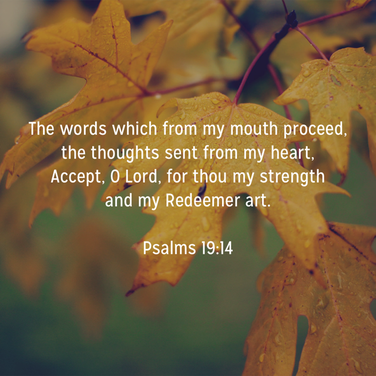
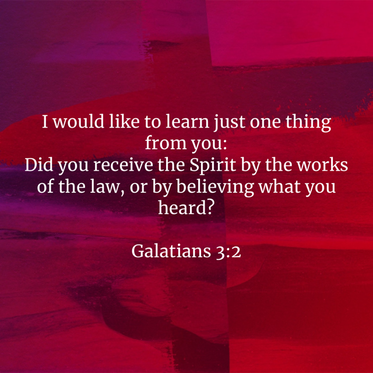
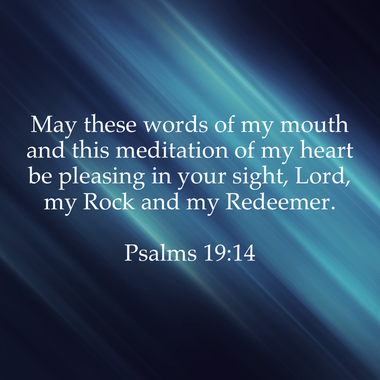
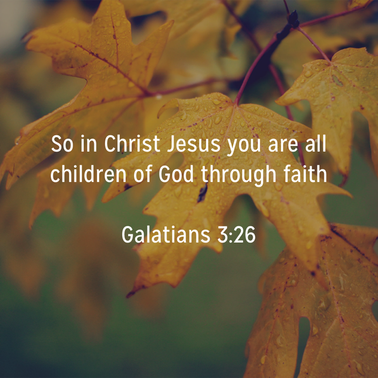
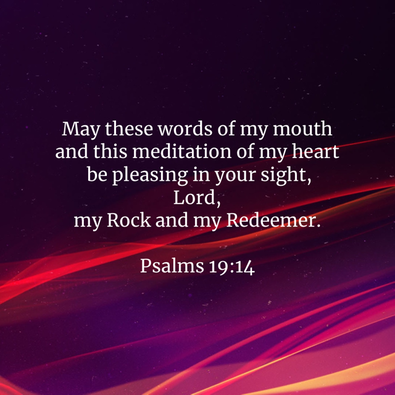
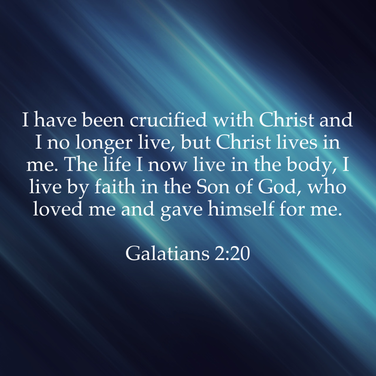
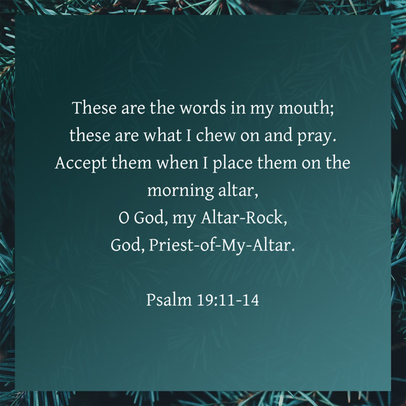
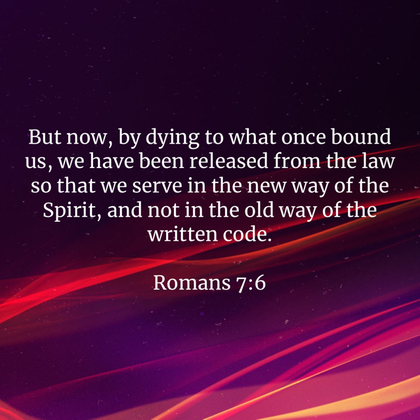

 RSS Feed
RSS Feed